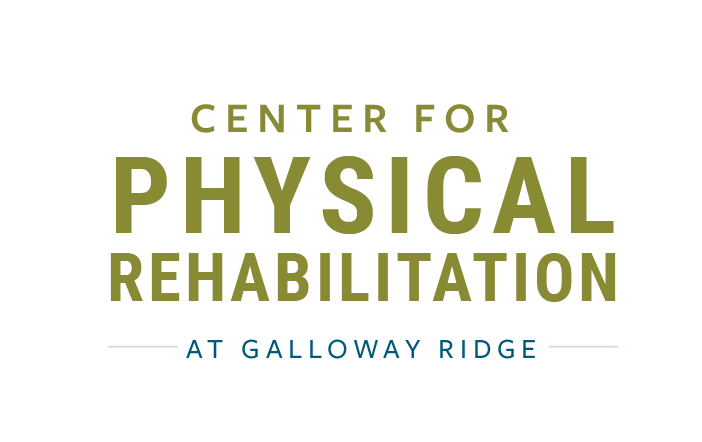Physical therapy helps you regain your life by easing the pain from an injury or chronic condition. Your treatment may last a few months or even years, as your physical therapist helps you improve functioning and your quality of life. Because physical therapy is often a journey, it’s normal to experience swings in your feelings and thoughts regarding your treatment journey.
We’ve prepared this comprehensive guide to help you care for your mental health during physical therapy. From coping strategies to social support and much more, there are countless ways you can take care of your mind and body. Read on to learn more about the connection to mental health and physical rehab. Feel free to contact our team at the Center for Physical Rehabilitation at Galloway Ridge if you would like to learn more about our rehabilitation services and support.
The Mind-Body Connection
If you think how your body feels affects your mental state, you’re correct! For a long time, people thought physical pain and thoughts were only loosely related. But now, recent research shows that our minds and bodies are much more connected than originally believed.
According to studies from the National Institutes of Health (NIH), stressful emotions and feelings can influence our body’s ability to handle pain and heal from injury. This connection between how the body feels and the mind thinks can result in vicious cycles if not managed properly. For example, if you’re already experiencing discomfort from a recent injury, your mind may start to worry or think negatively. This will likely only make the injury or ailment worse.
As you go through physical therapy, you may experience ebbs and flows through treatment. During the treatment process, the physical therapist employs a range of techniques, movements, and interventions to heal the affected area. But during some of these stages or movements, it’s normal to experience pain. It’s understandable that you might feel down or worried that you’re experiencing pain despite being in treatment. But trust the experts at CFPR at Galloway Ridge, there is no need to worry.
Discomfort and soreness are often to be expected when undergoing treatment with a physiotherapist. In order to work, the treatment must train your body to function better. Think about when you’re exercising or lifting weights—oftentimes, you’ll likely feel sore the next day from pushing yourself to be stronger. This same principle applies to each session in a physical therapy office.
Therapies to Treat the Mind and Body
Now that you understand the intersection between the mind’s workings and the body, you can understand why it’s so important to care for your mental health. Even outside of treatment, finding ways to decompress and ease stress can improve your daily life. If you’re going through physical therapy or other rehabilitation programs, here are some top ways to improve your mental health and well-being.
Patient Support Groups
These groups offer a safe space for anyone who is experiencing mental or physical challenges to come together and grow from the support of one another. During these support groups, you might share experiences, provide mutual support, and learn coping strategies from one another or a group leader. Click here to find a support group in your community.
Cognitive-Behavioral Therapy (CBT)
CBT is a widely used therapeutic approach that helps people identify and change any negative thought patterns and behaviors. During physical therapy, CBT can be particularly beneficial in addressing fears, anxieties, and negative beliefs about the recovery process. Through therapy, you can gain a positive mindset about your treatment and future. This may even help you improve the outcome of your physical therapy journey.
Meditation
Meditation allows the mind to check into the present moment and find relief from negative thoughts. The practice involves focusing the mind on a particular object, thought, or activity to achieve mental clarity and balance.
By incorporating meditation during or after physical therapy, you can better manage stress and reduce the perception of pain. Mediation even has a long list of benefits that go well beyond mental relaxation and stress relief. A study with 3500 participants who made mediation a habit found it helped them reduce complaints of chronic pain. Talk to your physical therapist more if you’re interested about incorporating the practice into your treatment journey.
Prayer
Prayer can serve as a source of comfort, strength, and hope during physical therapy. Engaging in prayer practices may provide a sense of connection to something greater for those who seek it. Millions of people have turned to prayer over the centuries through trials and tribulations to help them overcome their challenges.
Creative Arts Therapies (Art, Music, or Dance)
Creative arts therapies bring out the expressive power of art, music, or dance to promote self-awareness and emotional expression. When you create art, no matter which medium you choose, you’ll likely experience a cathartic release of emotion and built-up stress.
Engaging in creative activities during physical therapy not only serves as a form of distraction from pain and discomfort, but it also allows you to tap into your innate creativity and ideas. So, what will you choose to create?
Yoga
Yoga combines physical postures, breathwork, and mindfulness practices to promote physical strength and flexibility. Some physical therapy programs may already involve yoga, as it helps improve mobility and healing. Taking a yoga class or just spending time doing some dynamic moves can offer many benefits for your physical and mental health. Make sure to consult your physical therapist to make sure the yoga moves are safe for you.
Find Relief at Center for Physical Rehabilitation at Galloway Ridge
If you’re searching for a physical therapist in Pittsboro, NC or a surrounding area, reach out to the Center for Physical Rehabilitation at Galloway Ridge today. Our team of experienced therapists and staff are ready to help you find relief and overcome your physical and mental barriers. Call (919) 545-2633 to schedule an appointment today.

